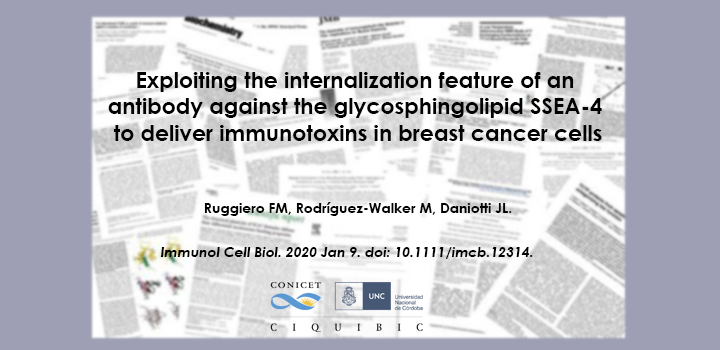Ruggiero et al. Immunol Cell Biol. 2020
The stage-specific embryonic antigen-4 (SSEA-4) is a cell surface glycosphingolipid antigen expressed in early stages of human development. This surface marker is downregulated during the differentiation process but is found re-expressed in several types of tumors, including breast cancer. This feature makes SSEA-4 an attractive target for the development of therapeutic antibodies against tumors. In this work, we first studied the binding and intracellular fate of the monoclonal antibody MC-813-70 directed against SSEA-4. MC-813-70 was found to be rapidly internalized into triple-negative breast cancer cells following binding to its target at the plasma membrane, and to accumulate in acidic organelles, most likely lysosomes. Given the internalization feature of MC-813-70, we next tested whether the antibody was able to selectively deliver the saporin toxin inside SSEA-4-expressing cells. Results show that the immunotoxin complex was properly endocytosed and able to reduce cell viability of breast cancer cells in vitro, either alone or in combination with chemotherapeutic drugs. Our findings indicate that the MC-813-70 antibody has the potential to be developed as an alternative targeted therapeutic agent for cancer cells expressing the SSEA-4 glycolipid.
Authors Ruggiero FM, Rodríguez-Walker M, Daniotti JL.
Article: Exploiting the internalization feature of an antibody against the glycosphingolipid SSEA-4 to deliver immunotoxins in breast cancer cells. Ruggiero FM, Rodríguez-Walker M, Daniotti JL. Immunol Cell Biol. 2020 Jan 9. doi: 10.1111/imcb.12314. virtus88



